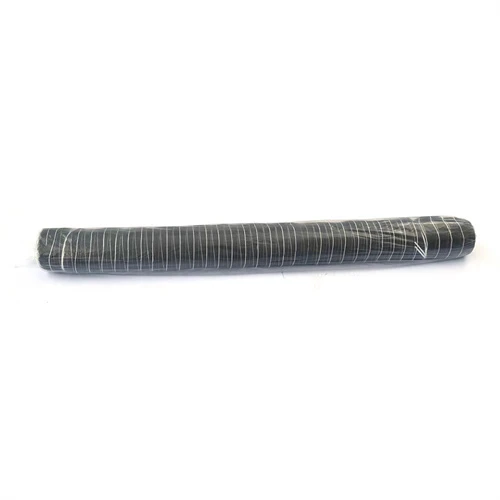-
 Afrikaans
Afrikaans -
 Albanian
Albanian -
 Amharic
Amharic -
 Arabic
Arabic -
 Armenian
Armenian -
 Azerbaijani
Azerbaijani -
 Basque
Basque -
 Belarusian
Belarusian -
 Bengali
Bengali -
 Bosnian
Bosnian -
 Bulgarian
Bulgarian -
 Catalan
Catalan -
 Cebuano
Cebuano -
 China
China -
 Corsican
Corsican -
 Croatian
Croatian -
 Czech
Czech -
 Danish
Danish -
 Dutch
Dutch -
 English
English -
 Esperanto
Esperanto -
 Estonian
Estonian -
 Finnish
Finnish -
 French
French -
 Frisian
Frisian -
 Galician
Galician -
 Georgian
Georgian -
 German
German -
 Greek
Greek -
 Gujarati
Gujarati -
 Haitian Creole
Haitian Creole -
 hausa
hausa -
 hawaiian
hawaiian -
 Hebrew
Hebrew -
 Hindi
Hindi -
 Miao
Miao -
 Hungarian
Hungarian -
 Icelandic
Icelandic -
 igbo
igbo -
 Indonesian
Indonesian -
 irish
irish -
 Italian
Italian -
 Japanese
Japanese -
 Javanese
Javanese -
 Kannada
Kannada -
 kazakh
kazakh -
 Khmer
Khmer -
 Rwandese
Rwandese -
 Korean
Korean -
 Kurdish
Kurdish -
 Kyrgyz
Kyrgyz -
 Lao
Lao -
 Latin
Latin -
 Latvian
Latvian -
 Lithuanian
Lithuanian -
 Luxembourgish
Luxembourgish -
 Macedonian
Macedonian -
 Malgashi
Malgashi -
 Malay
Malay -
 Malayalam
Malayalam -
 Maltese
Maltese -
 Maori
Maori -
 Marathi
Marathi -
 Mongolian
Mongolian -
 Myanmar
Myanmar -
 Nepali
Nepali -
 Norwegian
Norwegian -
 Norwegian
Norwegian -
 Occitan
Occitan -
 Pashto
Pashto -
 Persian
Persian -
 Polish
Polish -
 Portuguese
Portuguese -
 Punjabi
Punjabi -
 Romanian
Romanian -
 Russian
Russian -
 Samoan
Samoan -
 Scottish Gaelic
Scottish Gaelic -
 Serbian
Serbian -
 Sesotho
Sesotho -
 Shona
Shona -
 Sindhi
Sindhi -
 Sinhala
Sinhala -
 Slovak
Slovak -
 Slovenian
Slovenian -
 Somali
Somali -
 Spanish
Spanish -
 Sundanese
Sundanese -
 Swahili
Swahili -
 Swedish
Swedish -
 Tagalog
Tagalog -
 Tajik
Tajik -
 Tamil
Tamil -
 Tatar
Tatar -
 Telugu
Telugu -
 Thai
Thai -
 Turkish
Turkish -
 Turkmen
Turkmen -
 Ukrainian
Ukrainian -
 Urdu
Urdu -
 Uighur
Uighur -
 Uzbek
Uzbek -
 Vietnamese
Vietnamese -
 Welsh
Welsh -
 Bantu
Bantu -
 Yiddish
Yiddish -
 Yoruba
Yoruba -
 Zulu
Zulu
steel screening
Understanding Steel Screening Significance and Applications
Steel screening is a critical process in various industries that involves the separation of materials based on their size. This technique primarily utilizes screening equipment, such as vibrating screens or static screens, to separate fine particles from coarser materials, ensuring a desired level of purity and quality in the final product. The significance of steel screening cannot be underestimated, as it plays a vital role in ensuring efficiency and effectiveness in industrial operations.
One of the primary applications of steel screening is in the construction and mining industries. In these sectors, it is essential to separate different grades of sand, gravel, and aggregates for concrete production. Properly screened materials not only contribute to the strength and stability of the concrete but also enhance the overall performance of construction projects. For instance, using well-screened aggregates ensures that the concrete mixture possesses the right consistency and reduces the likelihood of cracks or structural failures over time.
In the metallurgy sector, steel screening is crucial for the processing of raw ores
. During the extraction of metals from ores, it is necessary to separate the valuable minerals from the gangue (waste material). Steel screens can efficiently segregate particles based on size, allowing for better recovery of the desired metals. This process enhances the efficiency of extraction methods and often leads to reduced operational costs for mining companies.steel screening

Another important application of steel screening lies in recycling operations. With the growing emphasis on sustainable practices, many industries have started to invest in recycling processes. Steel screening plays a vital role in the recycling of materials such as metals, plastics, and construction debris. By efficiently sorting and separating different materials, the recycling process becomes more efficient, leading to higher recovery rates and reduced waste.
In addition to traditional applications, steel screening technology has also seen advancements in recent years. The integration of automation and advanced materials has improved the efficiency and effectiveness of screening processes. Modern screening equipment is designed to handle various particle sizes and shapes, increasing operational flexibility and allowing for more precise separation. Furthermore, advancements in technology have led to the development of specialized screens, such as trommel screens, which are used for specific applications like composting and waste management.
Moreover, the implementation of proper maintenance and monitoring practices for screening equipment is essential to ensure optimal performance. Regular inspections and timely repairs can prevent breakdowns, reducing downtime and maintaining productivity. As industries increasingly rely on steel screening for their operations, adopting proactive maintenance strategies will be crucial for maximizing efficiency and minimizing costs.
In conclusion, steel screening is a crucial process that underpins various industrial operations, particularly in construction, mining, and recycling. Its ability to separate materials based on size enhances product quality and efficiency, making it indispensable in modern manufacturing and processing. As technology continues to advance, the future of steel screening looks promising, with innovations that will further enhance its effectiveness and expand its applications across different industries. Emphasizing the importance of proper maintenance and technological integration will ensure that steel screening maintains its essential role in achieving operational excellence.
-
Shipping Plastic Bags for Every NeedNewsJul.24,2025
-
Safety Netting: Your Shield in ConstructionNewsJul.24,2025
-
Plastic Mesh Netting for Everyday UseNewsJul.24,2025
-
Nylon Netting for Every UseNewsJul.24,2025
-
Mesh Breeder Box for Fish TanksNewsJul.24,2025
-
Expanded Steel Mesh Offers Durable VersatilityNewsJul.24,2025











